Case story on the promotion of the game on their own to the US App Store tops
In this article we want to talk about the strategy and tactics of introducing our f2p games of the Tower Defense (TD) genre to the US market. Sound budgets, share discoveries, analyze errors. The release of the game took place a year ago.
For the "seed" achievements of the game in the App Store:
1. visited the top6 and top7 of their categories in the US;
2. Fichering in New & Noteworthy in 68 countries;
3. about 500,000 downloads;
4. Apple's “letter of happiness”;
5. 5 stars - the average rating for all stores in six months;
6. Reviews on leading international mobile portals.
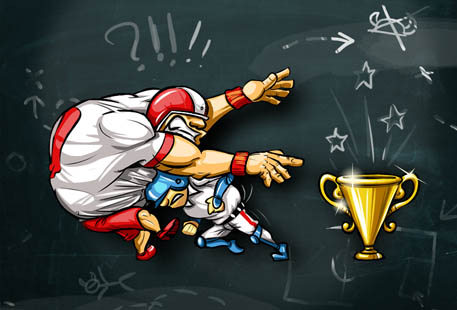
Earlier we talked about the balance of the game and the use of AI and utilities during development .
')
Experience in the US markets
Since 2004, our company has developed and independently released j2me games. We felt great on this platform and were able to gain a foothold not only in Russia, but also “shot” in some countries of the world. But even on j2me, we didn’t have any great victories at the US sites.
Experience on iOS
About how to make money on iOS, at that moment we didn’t know almost anything: before TD, which will be discussed in this article, we independently released two iOS games that we didn’t really promote. One of the games failed. The second one made its way to the top RU App Store and managed to permanently gain a foothold in good positions in its genres, but in the stores of other countries it did not achieve anything significant.
Experience in the development of TD
We have never done tower defense games before. The “horse” of our company is tamagotchi. All tamagochi in our portfolio - profitable. Having finished with the fish, we proceeded to the cats, after the cats to the dogs, and so on, so for TD there were no developments at all.
Experience in f2p
We released our first f2p game on j2me in 2006, getting hit and becoming pioneers of this business model. Without being superfluous, fearing to lose this competitive advantage, we released one after another f2p java games, and continued to apply this business model for iOS games as well. Despite the great experience and success of all our f2p, we are constantly learning and looking for new options for successful monetization. So, in our TD, we decided to move away from the monetization scheme we are used to and conduct an experiment.
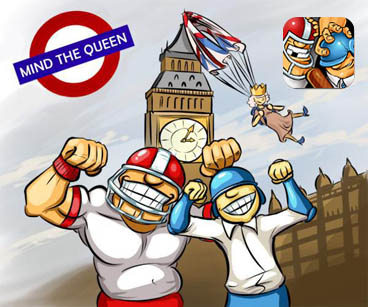
About a year before the start of development within the company, a competition was held for a game for iOS / Android. The second place just took the game of the genre Tower Defense. While we were developing the winning game, the idea and the setting for the proposed TD became irrelevant. But very much to all of us the genre of the game has sunk into the soul. The developers are psychologically tired of Tamagotchi, their “creative impulses” were extinguished from working in such a narrow genre specialization. And we decided to take a chance and spend a couple of months on the discussion of the setting and the creation of a prototype TD, and by the results we could either continue development or go back to the dogs.
We decided that we would not do another TD with a setting of zombies, fantasy, military equipment or apocalypse: to create a masterpiece in the classic shell and gameplay, you need to have good experience in developing strategies in general and TD in particular, which we did not have. And we decided to focus on the US consumer and come up with an interesting setting for him, which was not there before in TD. It was very difficult: artists painted concept by concept, which caused skepticism.
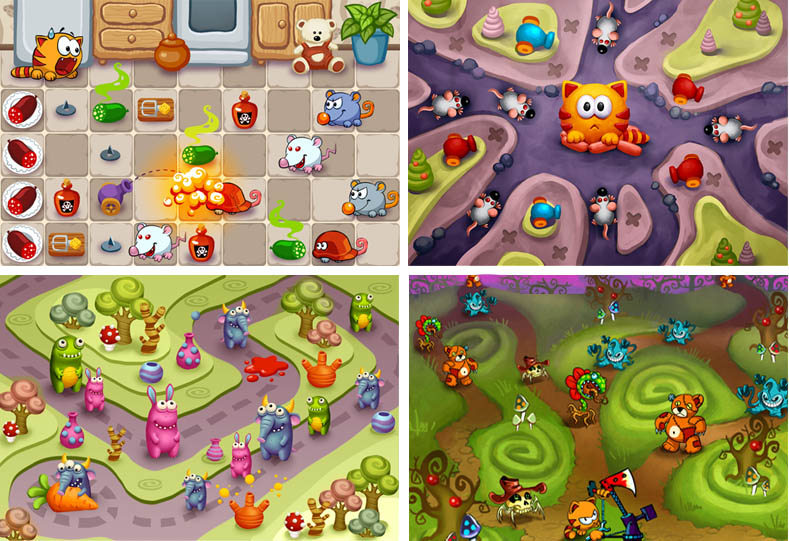
And when we were already ready to abandon the idea of TD in general, one of our colleagues suggested making a game in a stebnom sporting style - and Americans love sports, and TD hasn’t been like that yet.
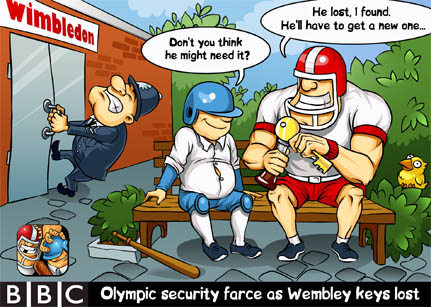
The proposal was received by the whole team positively. Ideas immediately poured in, most of which were embodied in the game: it was then that both the cheerleader who slows down her opponents with her dancing in a short skirt and the skier speeding in straight sections and the jumper as an air creep were invented.
Artists offered concept by concept:
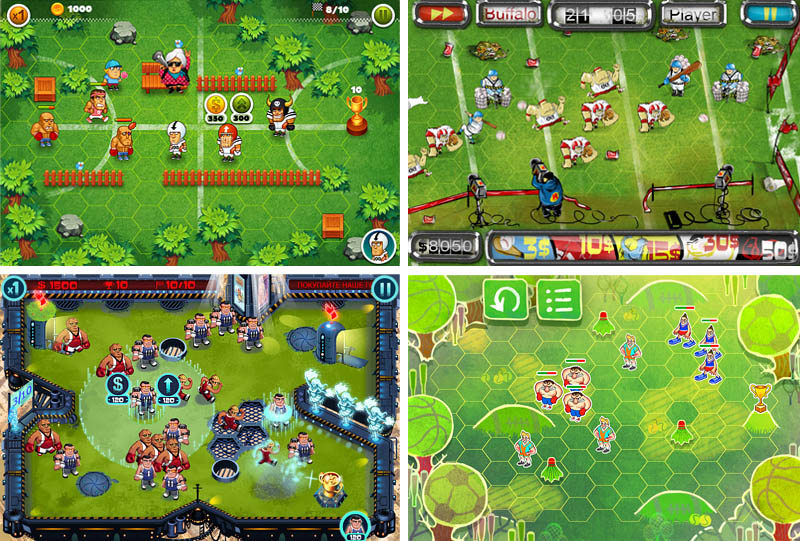
Most of all, we liked the options that reminded American comics about super-heroes, and another colleague "remembered" that the 2012 Olympic Games in London would start on the release dates of the game. It was like a sign of fate.
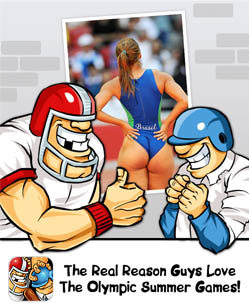
The whole team is incredibly united, before no project was discussed by so many employees of completely different job responsibilities. There was such a unity of the company in the desire to make a quality game, which, perhaps, even because of this, it was worth doing. In addition, I liked the prototype of the game, and the development began.
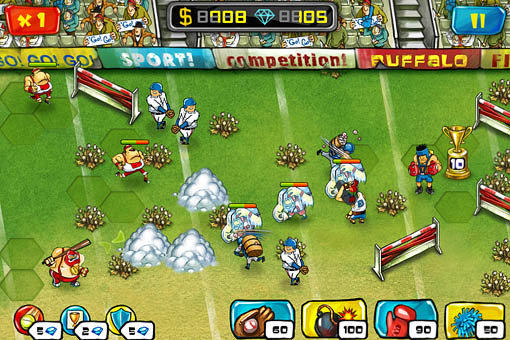
This article is dedicated to the promotion of the game, so we will not tell in detail how this or that gameplay decision was made. However, in summarizing the results we mention some mistakes made in the development.
Publishers
At the stage of discussing the concept of TD, we went to communicate “for life” with publishers. We simply represented the company, showed the catalog of the created projects and tried to figure out which games they should present. They all told in general the same thing about the original idea and the high-quality application, but among other things they mentioned that they definitely shouldn't go with the games of the TD genre. They say that they are being sent and sent by their developers, it is difficult to think of something interesting here, but they can no longer see them. We realized that presenting our TD now to publishers would be simply meaningless, and decided to postpone this moment towards the end of the development. Surprisingly, at this stage, our desire to do TD did not diminish at all, but, on the contrary, it made us focus on development even more.
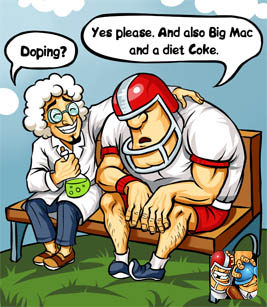
In May 2012, we sent out a presentation and video games to 10 foreign publishers and very quickly received as many as 4 answers that they liked the game very much and that was exactly what they needed. They began to communicate in more detail, and then it turned out that for 2 companies we do not fit into the release plan for the Olympiad. These publishers could launch us only after the New Year holidays (that is, six months after the release of the game). Two other companies wanted improvements, which also dragged on for several months of work.
Publishers have convinced us that the Olympics will not give anything, there is no point in focusing on it, that we will start fine later without it. It was a difficult decision. We wanted to work with one of the publishers, but to wait was unbearable. The following psychological moment played a big role: if the game was liked by the publishers, despite the fact that they initially did not even want to look at the games of the TD genre, then the game turned out to be amazing, and we can make our way to the top without a publisher. After all, what the publisher is: the rights to the game for several years, the finishing touches, the long coordination of all points in the contract, what exactly they will do to promote - we still won’t know, we’ll skip the Olympics, we’ll start at best in six months, and here she is a "live" game, almost ready for release. Somehow, reasoning like this, we suffered for several days and decided to release the game ourselves.
Advertising agencies
Then we decided to go to advertising agencies and buy from them any of the game promotion packages (packages cost $ 10K-30K). Previously, of course, we analyzed which of them led the games to the top, and began to negotiate with 3 companies. But here we are faced with the fact that no one subscribes to anything. We will send out press releases, but publications are not guaranteed. In the top we will display advertising - the budget of such and such, in social networks we will catch up with people - the budget of such and such and so on. For these budgets, we were able to do it ourselves. We were primarily interested in PR support, but there were no guarantees at all, so we also decided not to cooperate with the agencies.
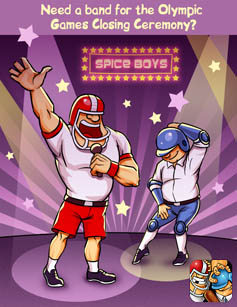
Monetization
Both now and a year ago there were articles calling for making IAP less intrusive, and the games themselves more loyal to the players. And we know that tough, but thoughtful monetization works fine. But for TD, we set ourselves the primary goal to get into the tops and get a large player base. To do this, we decided to release the game with very soft monetization. It turned out completely for the lazy, and in the future, even opponents of f2p games wrote good reviews and gave us fives. Our strategy was that, having made our way to good positions and received excellent ratings, with the updates of the game we will gradually begin to “tighten the screws” and better monetize the players who have sat down.
From paid to free
Although our TD was created as an f2p game, we decided to sell it for several weeks first, then switch to free and light up in applications that promote free games that were previously paid (there are a lot of them, for short, let's introduce the term FreeApp). We knew that some of the hit games were advancing this way, and we hoped that such a move would help us.
Reviews
At that time, we believed that impressive traffic was given to the game publication. What if we release good reviews in key publications, then we will immediately take off to the top, so we spent a lot of time working with journalists.
Many developers are trying in one way or another to “get” a journalist, make friends with him and “push” their project for review. Journalists are encrypted as they can: they don’t leave their phones, personal e-mails anywhere, remove the possibility to send messages to them from Facebook, etc. They even came up with the “oath of the editor” (OATS): never under any circumstances “sell” for money, nor for promotional codes, for anything — there — yet — developers — will come up.
We started to knock on journalists a month before the game’s release. The move went to linkedin, facebook (for those of them who have not quite gone underground), phone numbers of companies to which domains are registered, their personal websites. Plus they wrote to everyone. Found contacts of 3 journalists from the publication - they wrote. Found 15 - even better, again they wrote to everyone. In our case, almost always someone answered, although sometimes he was not a journalist, but a representative of the advertising department.
Nobody promised anything, no one wanted to look at the game before its appearance in the store, almost everyone wanted promotional codes and exclusive contests. But it was already good. At the very least, we knew that the promo code would reach the addressee. Part of the reviews were paid, plus we allocated a budget for valuable prizes (iPads) for competitions for three editions.
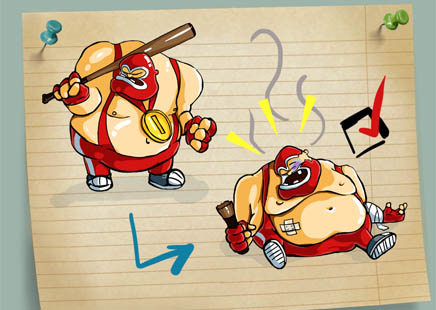
So, the game is paid for $ 1 in the categories of Sport and Strategy, and after 2 days it receives a feature in New & Noteworthy in 68 countries. We quickly begin to grow in positions in the genres and literally in a few days we are already at 13/19 places on the Ipad in the paid USA store (on the Iphone below). For the paid version, we did not buy ads. Several reviews were published (the main pool of publications was saved before switching to free), but we didn’t notice much of their effect on traffic.
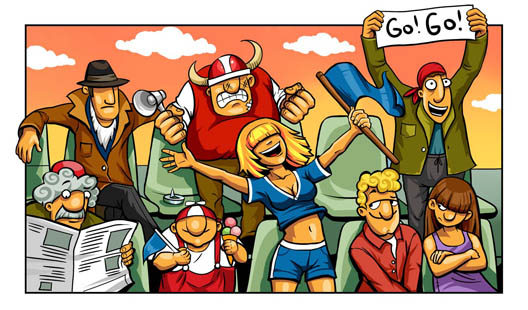
The reviews are good, the players leave even better reviews, put the game mostly 5 stars. IAP in the paid version is 25% of our income, while almost no one complains about them. For a start, everything is not bad, and we expect a real furore after switching to free.

The game was on sale for 5 days, when we received an email from Apple. In it, we were offered to urgently prepare promo for a large banner on the main page of iTunes. Artists at night go to work, marketing takes tears of happiness from such an opportunity to "light up."
In the morning we sent a banner and almost immediately saw a surprise in the "New Products" shop - a sequel to the game Fieldrunner. And this is like a smile of fate, because we understand that the two big TDs will not give a “big” feature, and Fieldrunner, unlike us, has a brand. We still have a hope for fichering for the Ipad, since Fieldrunner does not have the HD version at the time, plus the same Olympiad, and we have a sports setting.
Thursday is coming - a Fieldrunner is on the banner. On the same day, a letter arrives from the company, which seemed to us the most interesting for promotion in FreeApp, with the message that they had a window open for us tomorrow, and if the date does not suit us, then our reservation will be in 3 weeks.

Actually, we still wanted to hang in paid. There was a miserable hope for Apple's “big” feature in a week, and even though the download traffic began to show a downward trend, it still held. On the other hand, in 3 weeks without advertising support we will most likely be very far below, which we also did not want to admit. Nevertheless, we decided not to wait for 3 weeks and switch to free now.
Switched, and, of course, collapsed in positions in a huge competition free. Literally right there we appeared in several FreeApps. At the same time, most publications very quickly published reviews, placed contests with prizes. We also added advertising in parallel - the game quickly rose up in positions.
We reached the 6th and 7th positions in our categories and hit the top46 Games Free US. But then - as if the “wall”: we pour traffic, but we are not moving up anyway.
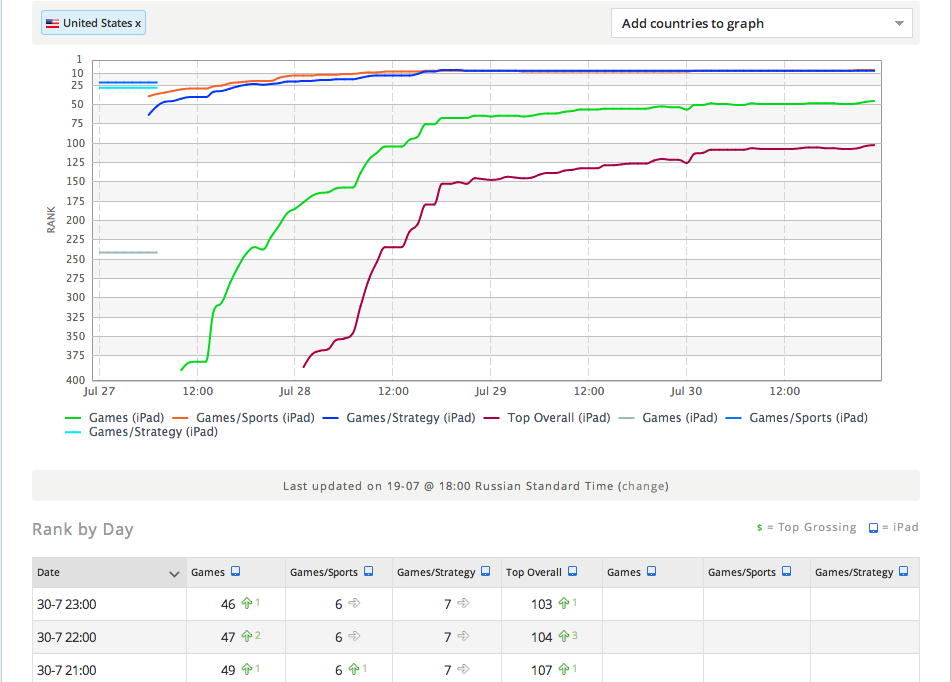
A few days the game was kept in good positions, but as it stopped pouring traffic, immediately collapsed. Neither new reviews, nor competitions with the iPad as the main prize, nor activity in social networks were able to stop this decline.

Further, as was the plan, we began to “tighten the screws” with the IAP and to release versions in which it became harder and harder to play without real spending. ARPU began to grow in progression as the monetization tightened, and rather quickly we got an interesting figure. Unfortunately, by the time the game was no longer on the top positions.
For a long time, even despite the experiments with monetization, the average rating of the game in all stores remained 5 stars. At the moment, it is 4.5 stars (3158 ratings), but this is due to several of the most "hard" versions: we wanted to understand the limit, and we deliberately overdid it.

In a number of other countries, we managed to stay in positions higher and hang there longer. For example, Russia:
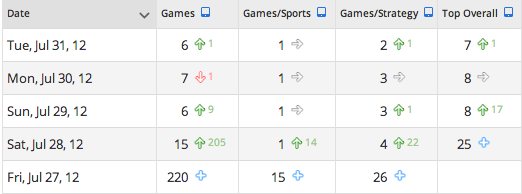

This is the budget for the US App Store, was still your own for Android.
Ad networks
We chose Tapjoy, bought ads only for the f2p version. Traffic from Tapjoy, of course, poor quality (launched-deleted), but good positions gave organic downloads, from which we were waiting for income. We poured it sparingly, then "adding up", then completely turning off the campaign. The CPI was $ 0.7, Tried, of course, $ 0.1- $ 0.6, but the most optimal were the results with $ 0.7.
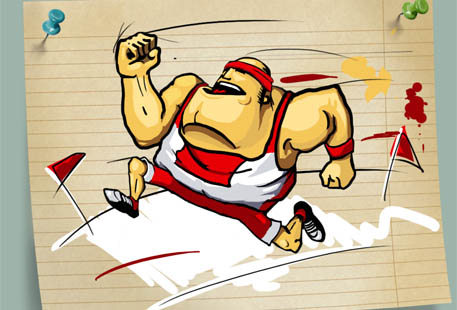
Work with the press
In English editions we wrote about us: 148Apps, KnowYourMobile, Technologytell, Appadvice, Pocketgamer, Slidetoplay, Apptudes, Appolicious, The-App-Shack, Appcraver, plus another 20 smaller editions.
In the reviews, journalists praised the game for the original steb setting, so that we were not mistaken. Perhaps it was the setting that allowed our TD to stand out in a stream of letters to game reporters. By the way, interestingly, paid reviews turned out to be even more honest than free ones - besides the advantages, they also pointed out the drawbacks, probably fearing bias. The problem that we faced here: you do not know for sure whether the reviews will publish on the required dates, even those for which they paid.
We spent a lot of resources on working with journalists, but significant effects from publications were only in Germany, Russia and China - we climbed up 1-2 places in categories, already being in good places, in the first few hours after the local reviews and in the absence of others types of promotion. In the US, in our opinion, the publication did not give us anything significant.
Initially, the budget for reviews was $ 8K, but, not seeing the effect of drawing iPad, canceled the planned competitions, and $ 3K was transferred to the budget for advertising.
Work with forums and soc. by networks
Where the game did not want to review, for example, on TouchArcade, we parted activity on the forums. Naturally, the work began long before the release. Several accounts, comments in different threads, and not just in the one that we started, plus following the forum rules - that's the whole trick.
For 2 months of work with the forums, we organized 7 contests. And now we can conclude: the big hype is not achieved by these actions. The reason is the following: a very specific audience participates in the contests. This is about 200 people who just earn money / prizes. And many of them are not residents of the United States and Europe. The maximum that can be obtained from this is +100 people on Facebook. When organizing competitions with the distribution of prizes, we recommend carefully analyzing the winners. Often, one person can have up to 7-8 accounts on the forum and thereby increase the chance of his victory.
We did not buy banner ads on top sites. It was considered that this would increase brand awareness, and nothing more. The proposals varied, but on average they looked like this: “CTR of the platinum package - 0.7-2.5%, gold - 0.3-0.8%, silver - 0.15% -0.6%. The cost for two weeks: $ 7,500, $ 3,500 and $ 2,500, respectively. " To allocate a part of the budget to such an “image drain”, we considered it inadmissible.
Freeapps
The effect of publications in such applications was, but our mistake was that we came to them late to agree on the date of posting: in the most popular of them everything was taken a month and a half in advance.

We do not disclose the development costs and revenues of games, but we can say that the game not only beat off all costs, but also gave a plus (but not one iOS version, plus Android). Now we believe that we could earn more if we had not made a number of mistakes, which we will discuss below.
Inspired by the results of TD and multiple praise of its setting, we after some time began to develop a new game of a completely different genre (arcade), but with characters, graphics and animation from our TD. It turned out the network multiplayer via wi-fi, while only for Android.Now this game is distributed completely free of charge without IAP at all, but with updates soon a store with bonus items will appear in it. This is another our experiment.
Errors of the game
The game was not fixed independently on the achieved positions, therefore, of course, first of all, the problems were in it itself. I do not want to publish gameplay errors in the publication on promotion, let us say only about the most obvious.
If we decided to go into the casual, then it was necessary to do everything quite differently. For example, unambiguous tracks, but not free construction. Either it was necessary to focus on connoisseurs of the genre, but then - the graphics are more brutal, the display of the parameters of the towers, etc. We also had a discrepancy between the visual range and game mechanics. We understood this quickly, but such global changes take time, so we decided to align other flaws, and this option may be implemented in one of the new versions of the game.
We should
- Faster to issue updates with tightened monetization. Too carefully, we "tighten the screws."
- Do not spend so much effort and money on PR, it would be better to add these amounts to the budget for advertising. Or - gave this part of the work to the agency. The budget + remuneration of employees engaged in PR is just equal to the cost of a good package.
- Start with the game first in one country, get experience and analytics, on the basis of which you can edit the game, and then go to the USA. But they hurried to the Olympiad, very much believed in the power and “internationalism” of the reviews, and, most importantly, the limited budget that I wanted to make maximum use of in the United States.
- Do not harbor confidence regarding the special attention to the game because of the Olympiad. As the publishers warned, the Olympiad did not help us.
- Still work with the publisher. The budget was limited, and the publisher would be able to break through the wall, which we stumbled upon 6-7 positions in the genres, plus indicate the mistakes of the game before its release. Of course, with hindsight, one cannot say that everything would be better with the publisher. How to know. But once we were given the chance to work with the gurus of the market, we should use them.
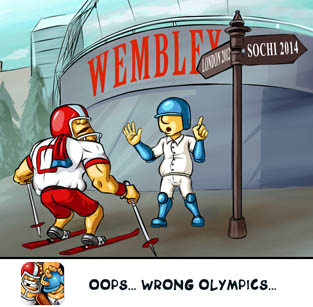
What they did well
1. Anti-piracy activities.
IAP was quickly tracked for IAP hacking, and they were trying to quickly remove the game from pirate portals.
2. Work with the press.
Despite all the disappointments associated with this stage of work, we believe that we did everything possible under those conditions.
What did not work out at all
1. Publications from top US bloggers.
They have a huge audience, they write about everything that catches their eye, but, probably, prestige does not allow them to write about an unknown product. Even for the money.
2. Create a viral video about the game. Now we believe that it is not easier than to promote the game.

We do not think that we have the right to give advice. Nevertheless, if you are a small and poor company that is going to publish the game independently, then we can tell you the following:
- As you develop the game, tell everyone about it: both B2B and B2C. And watch the reaction carefully. If any comments are repeated more than once - do not wave off, even if opinions are not authoritative for you, this is really a reason to think and, perhaps, to change something.
- With very limited budgets, priority is advertising.
- If someone needs to pay for something - bargain. If you fail to bring down the price "in the forehead," you can discuss special conditions with restrictions that will be more profitable for you than the original offer.
And, of course, good luck!
For the "seed" achievements of the game in the App Store:
1. visited the top6 and top7 of their categories in the US;
2. Fichering in New & Noteworthy in 68 countries;
3. about 500,000 downloads;
4. Apple's “letter of happiness”;
5. 5 stars - the average rating for all stores in six months;
6. Reviews on leading international mobile portals.

Earlier we talked about the balance of the game and the use of AI and utilities during development .
')
Our "baggage" of knowledge at that time
Experience in the US markets
Since 2004, our company has developed and independently released j2me games. We felt great on this platform and were able to gain a foothold not only in Russia, but also “shot” in some countries of the world. But even on j2me, we didn’t have any great victories at the US sites.
Experience on iOS
About how to make money on iOS, at that moment we didn’t know almost anything: before TD, which will be discussed in this article, we independently released two iOS games that we didn’t really promote. One of the games failed. The second one made its way to the top RU App Store and managed to permanently gain a foothold in good positions in its genres, but in the stores of other countries it did not achieve anything significant.
Experience in the development of TD
We have never done tower defense games before. The “horse” of our company is tamagotchi. All tamagochi in our portfolio - profitable. Having finished with the fish, we proceeded to the cats, after the cats to the dogs, and so on, so for TD there were no developments at all.
Experience in f2p
We released our first f2p game on j2me in 2006, getting hit and becoming pioneers of this business model. Without being superfluous, fearing to lose this competitive advantage, we released one after another f2p java games, and continued to apply this business model for iOS games as well. Despite the great experience and success of all our f2p, we are constantly learning and looking for new options for successful monetization. So, in our TD, we decided to move away from the monetization scheme we are used to and conduct an experiment.

Setting history
About a year before the start of development within the company, a competition was held for a game for iOS / Android. The second place just took the game of the genre Tower Defense. While we were developing the winning game, the idea and the setting for the proposed TD became irrelevant. But very much to all of us the genre of the game has sunk into the soul. The developers are psychologically tired of Tamagotchi, their “creative impulses” were extinguished from working in such a narrow genre specialization. And we decided to take a chance and spend a couple of months on the discussion of the setting and the creation of a prototype TD, and by the results we could either continue development or go back to the dogs.
We decided that we would not do another TD with a setting of zombies, fantasy, military equipment or apocalypse: to create a masterpiece in the classic shell and gameplay, you need to have good experience in developing strategies in general and TD in particular, which we did not have. And we decided to focus on the US consumer and come up with an interesting setting for him, which was not there before in TD. It was very difficult: artists painted concept by concept, which caused skepticism.

And when we were already ready to abandon the idea of TD in general, one of our colleagues suggested making a game in a stebnom sporting style - and Americans love sports, and TD hasn’t been like that yet.

The proposal was received by the whole team positively. Ideas immediately poured in, most of which were embodied in the game: it was then that both the cheerleader who slows down her opponents with her dancing in a short skirt and the skier speeding in straight sections and the jumper as an air creep were invented.
Artists offered concept by concept:

Most of all, we liked the options that reminded American comics about super-heroes, and another colleague "remembered" that the 2012 Olympic Games in London would start on the release dates of the game. It was like a sign of fate.

The whole team is incredibly united, before no project was discussed by so many employees of completely different job responsibilities. There was such a unity of the company in the desire to make a quality game, which, perhaps, even because of this, it was worth doing. In addition, I liked the prototype of the game, and the development began.

This article is dedicated to the promotion of the game, so we will not tell in detail how this or that gameplay decision was made. However, in summarizing the results we mention some mistakes made in the development.
To promote
Publishers
At the stage of discussing the concept of TD, we went to communicate “for life” with publishers. We simply represented the company, showed the catalog of the created projects and tried to figure out which games they should present. They all told in general the same thing about the original idea and the high-quality application, but among other things they mentioned that they definitely shouldn't go with the games of the TD genre. They say that they are being sent and sent by their developers, it is difficult to think of something interesting here, but they can no longer see them. We realized that presenting our TD now to publishers would be simply meaningless, and decided to postpone this moment towards the end of the development. Surprisingly, at this stage, our desire to do TD did not diminish at all, but, on the contrary, it made us focus on development even more.

In May 2012, we sent out a presentation and video games to 10 foreign publishers and very quickly received as many as 4 answers that they liked the game very much and that was exactly what they needed. They began to communicate in more detail, and then it turned out that for 2 companies we do not fit into the release plan for the Olympiad. These publishers could launch us only after the New Year holidays (that is, six months after the release of the game). Two other companies wanted improvements, which also dragged on for several months of work.
Publishers have convinced us that the Olympics will not give anything, there is no point in focusing on it, that we will start fine later without it. It was a difficult decision. We wanted to work with one of the publishers, but to wait was unbearable. The following psychological moment played a big role: if the game was liked by the publishers, despite the fact that they initially did not even want to look at the games of the TD genre, then the game turned out to be amazing, and we can make our way to the top without a publisher. After all, what the publisher is: the rights to the game for several years, the finishing touches, the long coordination of all points in the contract, what exactly they will do to promote - we still won’t know, we’ll skip the Olympics, we’ll start at best in six months, and here she is a "live" game, almost ready for release. Somehow, reasoning like this, we suffered for several days and decided to release the game ourselves.
Advertising agencies
Then we decided to go to advertising agencies and buy from them any of the game promotion packages (packages cost $ 10K-30K). Previously, of course, we analyzed which of them led the games to the top, and began to negotiate with 3 companies. But here we are faced with the fact that no one subscribes to anything. We will send out press releases, but publications are not guaranteed. In the top we will display advertising - the budget of such and such, in social networks we will catch up with people - the budget of such and such and so on. For these budgets, we were able to do it ourselves. We were primarily interested in PR support, but there were no guarantees at all, so we also decided not to cooperate with the agencies.

Strategy and tactics
Monetization
Both now and a year ago there were articles calling for making IAP less intrusive, and the games themselves more loyal to the players. And we know that tough, but thoughtful monetization works fine. But for TD, we set ourselves the primary goal to get into the tops and get a large player base. To do this, we decided to release the game with very soft monetization. It turned out completely for the lazy, and in the future, even opponents of f2p games wrote good reviews and gave us fives. Our strategy was that, having made our way to good positions and received excellent ratings, with the updates of the game we will gradually begin to “tighten the screws” and better monetize the players who have sat down.
From paid to free
Although our TD was created as an f2p game, we decided to sell it for several weeks first, then switch to free and light up in applications that promote free games that were previously paid (there are a lot of them, for short, let's introduce the term FreeApp). We knew that some of the hit games were advancing this way, and we hoped that such a move would help us.
Reviews
At that time, we believed that impressive traffic was given to the game publication. What if we release good reviews in key publications, then we will immediately take off to the top, so we spent a lot of time working with journalists.
Many developers are trying in one way or another to “get” a journalist, make friends with him and “push” their project for review. Journalists are encrypted as they can: they don’t leave their phones, personal e-mails anywhere, remove the possibility to send messages to them from Facebook, etc. They even came up with the “oath of the editor” (OATS): never under any circumstances “sell” for money, nor for promotional codes, for anything — there — yet — developers — will come up.
We started to knock on journalists a month before the game’s release. The move went to linkedin, facebook (for those of them who have not quite gone underground), phone numbers of companies to which domains are registered, their personal websites. Plus they wrote to everyone. Found contacts of 3 journalists from the publication - they wrote. Found 15 - even better, again they wrote to everyone. In our case, almost always someone answered, although sometimes he was not a journalist, but a representative of the advertising department.
Nobody promised anything, no one wanted to look at the game before its appearance in the store, almost everyone wanted promotional codes and exclusive contests. But it was already good. At the very least, we knew that the promo code would reach the addressee. Part of the reviews were paid, plus we allocated a budget for valuable prizes (iPads) for competitions for three editions.

Chronology of events
So, the game is paid for $ 1 in the categories of Sport and Strategy, and after 2 days it receives a feature in New & Noteworthy in 68 countries. We quickly begin to grow in positions in the genres and literally in a few days we are already at 13/19 places on the Ipad in the paid USA store (on the Iphone below). For the paid version, we did not buy ads. Several reviews were published (the main pool of publications was saved before switching to free), but we didn’t notice much of their effect on traffic.

The reviews are good, the players leave even better reviews, put the game mostly 5 stars. IAP in the paid version is 25% of our income, while almost no one complains about them. For a start, everything is not bad, and we expect a real furore after switching to free.

The game was on sale for 5 days, when we received an email from Apple. In it, we were offered to urgently prepare promo for a large banner on the main page of iTunes. Artists at night go to work, marketing takes tears of happiness from such an opportunity to "light up."
In the morning we sent a banner and almost immediately saw a surprise in the "New Products" shop - a sequel to the game Fieldrunner. And this is like a smile of fate, because we understand that the two big TDs will not give a “big” feature, and Fieldrunner, unlike us, has a brand. We still have a hope for fichering for the Ipad, since Fieldrunner does not have the HD version at the time, plus the same Olympiad, and we have a sports setting.
Thursday is coming - a Fieldrunner is on the banner. On the same day, a letter arrives from the company, which seemed to us the most interesting for promotion in FreeApp, with the message that they had a window open for us tomorrow, and if the date does not suit us, then our reservation will be in 3 weeks.

Actually, we still wanted to hang in paid. There was a miserable hope for Apple's “big” feature in a week, and even though the download traffic began to show a downward trend, it still held. On the other hand, in 3 weeks without advertising support we will most likely be very far below, which we also did not want to admit. Nevertheless, we decided not to wait for 3 weeks and switch to free now.
Switched, and, of course, collapsed in positions in a huge competition free. Literally right there we appeared in several FreeApps. At the same time, most publications very quickly published reviews, placed contests with prizes. We also added advertising in parallel - the game quickly rose up in positions.
We reached the 6th and 7th positions in our categories and hit the top46 Games Free US. But then - as if the “wall”: we pour traffic, but we are not moving up anyway.

A few days the game was kept in good positions, but as it stopped pouring traffic, immediately collapsed. Neither new reviews, nor competitions with the iPad as the main prize, nor activity in social networks were able to stop this decline.

Further, as was the plan, we began to “tighten the screws” with the IAP and to release versions in which it became harder and harder to play without real spending. ARPU began to grow in progression as the monetization tightened, and rather quickly we got an interesting figure. Unfortunately, by the time the game was no longer on the top positions.
For a long time, even despite the experiments with monetization, the average rating of the game in all stores remained 5 stars. At the moment, it is 4.5 stars (3158 ratings), but this is due to several of the most "hard" versions: we wanted to understand the limit, and we deliberately overdid it.

In a number of other countries, we managed to stay in positions higher and hang there longer. For example, Russia:

Budgets

This is the budget for the US App Store, was still your own for Android.
Ad networks
We chose Tapjoy, bought ads only for the f2p version. Traffic from Tapjoy, of course, poor quality (launched-deleted), but good positions gave organic downloads, from which we were waiting for income. We poured it sparingly, then "adding up", then completely turning off the campaign. The CPI was $ 0.7, Tried, of course, $ 0.1- $ 0.6, but the most optimal were the results with $ 0.7.

Work with the press
In English editions we wrote about us: 148Apps, KnowYourMobile, Technologytell, Appadvice, Pocketgamer, Slidetoplay, Apptudes, Appolicious, The-App-Shack, Appcraver, plus another 20 smaller editions.
In the reviews, journalists praised the game for the original steb setting, so that we were not mistaken. Perhaps it was the setting that allowed our TD to stand out in a stream of letters to game reporters. By the way, interestingly, paid reviews turned out to be even more honest than free ones - besides the advantages, they also pointed out the drawbacks, probably fearing bias. The problem that we faced here: you do not know for sure whether the reviews will publish on the required dates, even those for which they paid.
We spent a lot of resources on working with journalists, but significant effects from publications were only in Germany, Russia and China - we climbed up 1-2 places in categories, already being in good places, in the first few hours after the local reviews and in the absence of others types of promotion. In the US, in our opinion, the publication did not give us anything significant.
Initially, the budget for reviews was $ 8K, but, not seeing the effect of drawing iPad, canceled the planned competitions, and $ 3K was transferred to the budget for advertising.
Work with forums and soc. by networks
Where the game did not want to review, for example, on TouchArcade, we parted activity on the forums. Naturally, the work began long before the release. Several accounts, comments in different threads, and not just in the one that we started, plus following the forum rules - that's the whole trick.
For 2 months of work with the forums, we organized 7 contests. And now we can conclude: the big hype is not achieved by these actions. The reason is the following: a very specific audience participates in the contests. This is about 200 people who just earn money / prizes. And many of them are not residents of the United States and Europe. The maximum that can be obtained from this is +100 people on Facebook. When organizing competitions with the distribution of prizes, we recommend carefully analyzing the winners. Often, one person can have up to 7-8 accounts on the forum and thereby increase the chance of his victory.
We did not buy banner ads on top sites. It was considered that this would increase brand awareness, and nothing more. The proposals varied, but on average they looked like this: “CTR of the platinum package - 0.7-2.5%, gold - 0.3-0.8%, silver - 0.15% -0.6%. The cost for two weeks: $ 7,500, $ 3,500 and $ 2,500, respectively. " To allocate a part of the budget to such an “image drain”, we considered it inadmissible.
Freeapps
The effect of publications in such applications was, but our mistake was that we came to them late to agree on the date of posting: in the most popular of them everything was taken a month and a half in advance.

Results
We do not disclose the development costs and revenues of games, but we can say that the game not only beat off all costs, but also gave a plus (but not one iOS version, plus Android). Now we believe that we could earn more if we had not made a number of mistakes, which we will discuss below.
Inspired by the results of TD and multiple praise of its setting, we after some time began to develop a new game of a completely different genre (arcade), but with characters, graphics and animation from our TD. It turned out the network multiplayer via wi-fi, while only for Android.Now this game is distributed completely free of charge without IAP at all, but with updates soon a store with bonus items will appear in it. This is another our experiment.
Bug work
Errors of the game
The game was not fixed independently on the achieved positions, therefore, of course, first of all, the problems were in it itself. I do not want to publish gameplay errors in the publication on promotion, let us say only about the most obvious.
If we decided to go into the casual, then it was necessary to do everything quite differently. For example, unambiguous tracks, but not free construction. Either it was necessary to focus on connoisseurs of the genre, but then - the graphics are more brutal, the display of the parameters of the towers, etc. We also had a discrepancy between the visual range and game mechanics. We understood this quickly, but such global changes take time, so we decided to align other flaws, and this option may be implemented in one of the new versions of the game.
We should
- Faster to issue updates with tightened monetization. Too carefully, we "tighten the screws."
- Do not spend so much effort and money on PR, it would be better to add these amounts to the budget for advertising. Or - gave this part of the work to the agency. The budget + remuneration of employees engaged in PR is just equal to the cost of a good package.
- Start with the game first in one country, get experience and analytics, on the basis of which you can edit the game, and then go to the USA. But they hurried to the Olympiad, very much believed in the power and “internationalism” of the reviews, and, most importantly, the limited budget that I wanted to make maximum use of in the United States.
- Do not harbor confidence regarding the special attention to the game because of the Olympiad. As the publishers warned, the Olympiad did not help us.
- Still work with the publisher. The budget was limited, and the publisher would be able to break through the wall, which we stumbled upon 6-7 positions in the genres, plus indicate the mistakes of the game before its release. Of course, with hindsight, one cannot say that everything would be better with the publisher. How to know. But once we were given the chance to work with the gurus of the market, we should use them.

What they did well
1. Anti-piracy activities.
IAP was quickly tracked for IAP hacking, and they were trying to quickly remove the game from pirate portals.
2. Work with the press.
Despite all the disappointments associated with this stage of work, we believe that we did everything possible under those conditions.
What did not work out at all
1. Publications from top US bloggers.
They have a huge audience, they write about everything that catches their eye, but, probably, prestige does not allow them to write about an unknown product. Even for the money.
2. Create a viral video about the game. Now we believe that it is not easier than to promote the game.

Parting words
We do not think that we have the right to give advice. Nevertheless, if you are a small and poor company that is going to publish the game independently, then we can tell you the following:
- As you develop the game, tell everyone about it: both B2B and B2C. And watch the reaction carefully. If any comments are repeated more than once - do not wave off, even if opinions are not authoritative for you, this is really a reason to think and, perhaps, to change something.
- With very limited budgets, priority is advertising.
- If someone needs to pay for something - bargain. If you fail to bring down the price "in the forehead," you can discuss special conditions with restrictions that will be more profitable for you than the original offer.
And, of course, good luck!
Source: https://habr.com/ru/post/191146/
All Articles